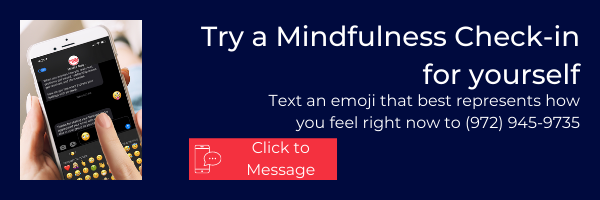Stressed: How Remote Working Impacts Mental Health
There’s a popular trope in horror movies and scary stories where the babysitter (or whatever main character) realizes that the calls are coming… from inside the house!!! For many of us working from home these past months, this terror is all too relatable. Our homes and workplaces have suddenly merged, and it has become increasingly difficult to separate these two spheres of our life. Work emails and status update meetings have invaded what was once our safe space. Now there’s no place to hide! So what can we do to alleviate some of the stresses that have arisen from remote working?
Listen to "Stressed: How remote working impacts mental health" on Spreaker.
1. Create a physical barrier
Allot a designated space of your home that is for work only. This area is to quarantine from all home-life issues. Likewise, you cannot risk having any work matters infecting your home, so all business affairs must be left in the work-bubble. If you don’t have a spare room, then draw a line around an area like they did in old sitcoms when two roommates weren’t getting along; the point is to have a specifically designated area with physical barriers and concrete rules establishing this as a workspace only.
2. Check on each other
Zoom is great for things like livening up a meeting by putting an island sunset in the background, or making our face look like a puppy, but it can’t beat face-to-face interaction when it comes to gauging someone’s wellbeing. Being able to turn off cameras and spotty wi-fi connections only worsen this. So it is crucial that we take time to actually ask coworkers how they are doing. Apps like MindfulAppy make it easy for coworkers and employees to anonymously report on their emotional state. Managers and coworkers can then more easily address issues to make sure that everyone is operating at their best.
3. Check on yourself
But more importantly, make sure you are doing fine first. Without having to take time to commute, many of us are justifying pushing ourselves to work just a little bit more, a little bit more, a little bit more until we’ve exhausted ourselves. Take a break! If you feel guilty, literally give yourself permission to take 10 minutes to go for a walk or grab something to eat. Even taking a minute before a Zoom conference to take deep breaths and count to 60 can do wonders to rejuvenate your mental wellbeing. If your conscience is still making you feel guilty for taking a little personal time, then do something productive, like push-ups, but just do something that isn’t work for a little while.
4. Exercise
Taking a walk or doing some push-ups, or really any exercise, is great for countering some of remote working’s more noticeable side effects. As our amount of screen time has increased, as has some of our waistlines. Taking time to be physically active is more important than ever now, as a way to combat the Quarantine 15 (or as well call them over here, “corona kilos”) and improve our mental wellbeing.
5. Communicate
Between WhatsApp, FaceTime, emails, texts, Zoom, Slack and Skype (the list goes on..) it would seem like we’re communicating more than ever now. But we’re not connecting as much; so much nuance like tone and body language get lost in digital communication. So now we aren’t sure if our boss is being sarcastic when they told us our presentation was pure genius. Knowing if we are doing a good job, or if we’re even doing enough, is essential for job satisfaction, but it’s been sacrificed in our digital workspaces. The days of simply popping into someone’s office to clarify a command or provide some quick feedback are over for now, so it is crucial that managers and employers take the time to check on employees. Provide explicit feedback, and check on your employees frequently, and thoroughly.
Mindful Takeaway
Working from home doesn’t have to be a horror movie. Sure the constant bombardment of home and work tasks may feel like the phone booth scene from The Birds, and the sheer isolation may make your house seem like the Overlook Hotel, but if we all just take some time for ourselves, and set some boundaries, we might just make it out of this alive.
By Ky Benkoi,
Writer for Mindful Appy
Ky Benko is an Elementary School teacher/librarian currently residing in the Netherlands where he enjoys riding bikes and eating cheese
You can listen to and follow Feelings Matter on:



